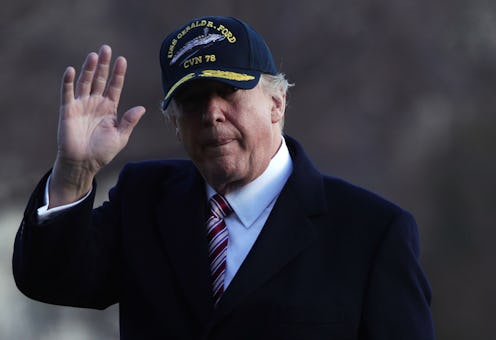News
Does The New Travel Ban Affect Green Card Holders?

On Monday, Donald Trump issued a new set of travel and immigration restrictions, which were a revised version of his earlier executive order. The earlier order sent various government agencies and airport security teams into a tail spin because of, what critics argued were, ill-defined and vague directions to not permit people with differing travel and residency statuses from certain countries to enter the United States. An important aspect of this new order is that it does not deny green card holders entry into the United States, which was a particularly confusing part of the last iteration of the travel ban.
"Green card holders" refers to legal permanent residents of the United States who are not citizens. They can live and work in the United States legally and without fear of deportation, as long as they do not violate any laws that would allow the government to revoke their legal status under immigration law. People who hold green cards can travel freely in and out of the United States, which is where the problems arose in January when Trump's initial ban took effect. Some green card holders who were traveling abroad, and were originally from the the seven countries that the executive order focused on —Iraq, Iran, Yemen, Syria, Somalia, Sudan and Libya — were not allowed to board planes back to the United States. At the time, the language of the ban did not allow for exemptions for green card holders. Vox estimated that 500,000 permanent residents would have been affected by the earlier version of the ban.
This time around, the Trump administration is making it perfectly clear that green card holders, as well as people with current visas, will not be affected by the ban. On Monday, White House senior adviser Kellyanne Conway appeared on Fox & Friends to highlight the changes made to the immigration guidelines in order to make the order constitutionally sound, after the first version of the travel ban was swiftly struck down in court.
"If you have travel docs, if you actually have a visa, if you are a legal permanent resident, you are not covered under this particular executive action," Conway said while explaining the new "six or seven major points" that would clear up the ambiguity of who is covered and who is not that stemmed from the initial order. The new executive order will also not go into place for 10 days, giving government agencies some time to prepare for the changes. The first executive order guidelines went into effect immediately, leading to chaos at certain airports and a wave of backlash.